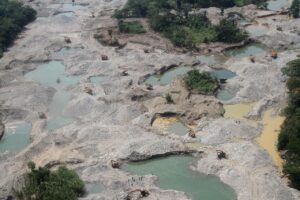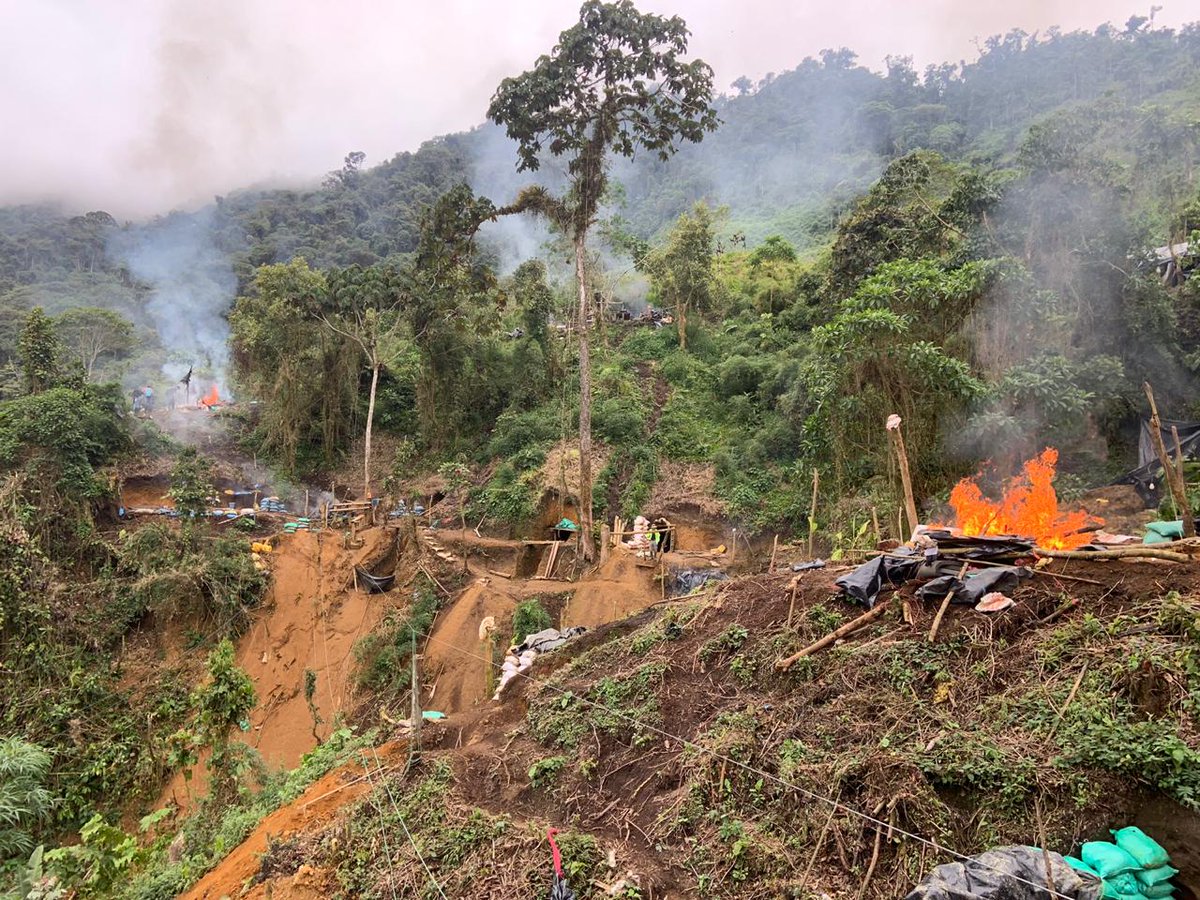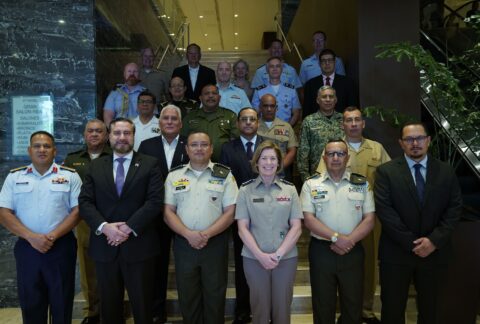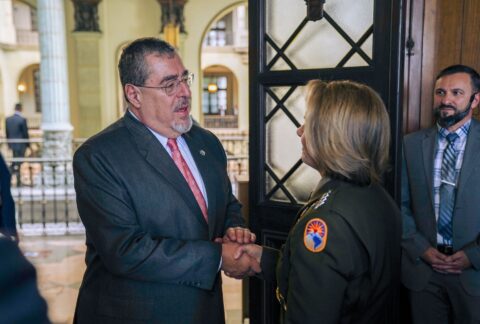Organized crime, illegal mining, and illicit gold trade between Ecuador and China have increased substantially in recent years, the Organization of American States (OAS) indicated in a report. These problems have led Ecuador to declare illegal mining a national security threat on January 26.
According to the OAS report, On the Trail of Illicit Gold Proceeds: Strengthening the Fight Against Illegal Mining Finance, Ecuador’s Case, in 2019 Ecuador exported nearly four times the amount of gold exported by Colombia and Peru combined. China received more than 99 percent of these exports.
The report highlights a notable and growing discrepancy in reported value of gold trade flows between the Andean country and China. Officially, Ecuador recorded exporting gold valued at $76.6 million to China in 2019, but Beijing reported $339.2 million, an amount that suggests the commercialization of illegal gold.
“Given this contradicting data, the Ecuadorian state definitely has to follow up,” María Eulalia Silva, president of the Ecuadorian Chamber of Mines, told Diálogo on February 27. “That would be one of the major outflow channels for illegal mining.”
Criminals innovate and adapt their methods of laundering assets supported by trade in order to export large quantities of illegal gold to international buyers, the OAS report indicated. The increase in the outflow of Ecuadorian gold to China and the use of false invoices in recent years deserve special attention.
Gold represents the largest of Ecuador’s precious metal exports, around 95 percent. “Official data reports that in 20 of Ecuador’s 24 provinces there are illicit mineral extraction activities, including in national parks,” Silva said.

In Ecuador’s northern region of the Amazon, illegal mining increased 58 percent between 2021 and 2022. The accumulated degradation associated with this activity in the forest and the Punino River has reached 217 hectares to date, 185 hectares of which were razed in 2022, environmental journalism news site Mongabay reported.
Security threat
The OAS report stresses that Ecuadorian criminal gangs and organizations from neighboring countries take advantage of the porous border with Colombia and Peru to enter Ecuador’s illegal mining supply chains.
According to the report, Colombian criminal gangs, armed groups such as the National Liberation Army, dissidents of the Revolutionary Armed Forces of Colombia, and even extra-regional criminal gangs, are involved in the illicit gold trade in Ecuador.
Criminal organizations are involved in extorting illegal miners, financing, smuggling illegal mining machinery and chemicals, and transporting and laundering illicit gold. Meanwhile, Colombian criminals smuggle disassembled gold mining machines into Ecuador, the OAS report indicated.
In January, Ecuador’s Vice Minister of Mines Xavier Vera Grunauer told Ecuadorian daily Primicias that “the way these groups operate includes a whole structure: from the exploitation of people, armed security and food, to the commercialization and distribution of mining material.”
“Narcotrafficking and illegal mining are related. They feed off each other,” Silva said. “If the mineral supply is done in the shadows, illegally, with financing and support from narcotrafficking, it affects the stability of the region.”
Several steps
To address the situation, Ecuador declared illegal mining as “a threat to the integral security of the state,” because this scourge is part of the narcotrafficking, arms trafficking, and money laundering chain, the Ecuadorian government said.
Ecuador’s Secretary of State Security Diego Ordóñez said that the government will support legally registered mining concessions, and will establish reviews, controls, and state supervision of activities that contribute to illegal mining. Measures, he added, will include reviewing sanctions as well as the participation of the Armed Forces and the Police in control operations.
“We congratulate the government’s announcement, but we need greater presence of the public forces in remote areas of the country and a national policy against illegal mining, where all the forces and powers of the nation are aligned,” Silva said. “It’s a must to train the entire state so that they know how this industry works.”
“It is also important for Ecuadorian authorities to adopt a more comprehensive approach that encompasses actors higher up the supply chain such as financiers, money launderers, exporters, and traders of illicit gold,” the OAS report recommended for its part.
To supplement Ecuador’s efforts to develop the legal mining sector as an engine for economic growth and investment, “buyers, regardless of their country of origin, must commit to comply with regulations and standards, because that is going to give sustainability to the mining sector in the long term,” Silva concluded.









